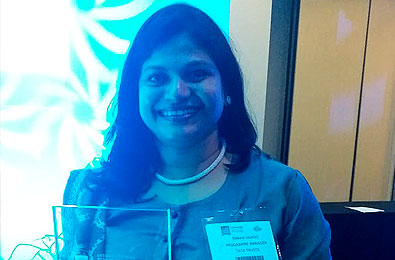Teaching for Early Language and Literacy
Strong language and literacy development in early grades form the foundation for all future learning. The ability to critically engage with textbooks is a skill that can only be developed by grade-appropriate literacy development in the crucial early years. India has made significant progress in improving access to schooling and in enrolment rates in the elementary education. However, numerous research studies and national surveys show that children are not achieving grade-appropriate learning levels.
According to the Annual Status of Education Report (ASER, 2018), only 25% of grade III students can read and understand a simple story by themselves. Complicating the already-complex situation is the culture of rote memorisation, copying and repetitive non-learning tasks, the failure to acknowledge and support continuity and meaningful transition from oral cultures to print-based cultures, etc.
Systemic issues such as the lack of accountability for student learning, lack of good children’s literature in classrooms, inadequate monitoring and adequate support for teachers exacerbate the situation. Inadequate understanding of acquisition and development of literacy in Indian languages has significantly contributed to continuing gaps in teacher education and curriculum, as well as to the inability of the sector in finding lasting solutions to the largescale problem of literacy failure in school-going children.
Though early literacy is fundamental to school education, it is an under-developed and under-researched discipline. So, for over a decade, the Tata Trusts have supported programmes in the field of early literacy through research and field interventions. These programmes, working on multiple levels, focus on building foundational literacy skills in early primary grades. They include:
- Field demonstrations of robust practices of early literacy in Indian languages, with a focus on primary schools
- Emergent literacy work in anganwadis
- Developing effective curriculum, assessments and specialised teacher education modules on early literacy
- Access to appropriate reading material
- Addressing knowledge gaps
The Trusts partner with organisations such as the Language Learning Foundation, New Delhi, to develop and offer professional development courses on early language and literacy for teachers, teacher educators and key resource persons in Hindi in five northern states of India. The Trusts have also set up an Early Literacy Initiative at the Tata Institute of Social Sciences, Hyderabad, for knowledge building on early literacy in the Indian context, developing professional development courses, and undertaking advocacy.
In addition, the Trusts’ education interventions in different regional geographies including Rajasthan, Karnataka, Jharkhand, Gujarat and Uttar Pradesh, have a strong early literacy component. Working in collaboration with non-government organisations, government organisations and schools, the Trusts’ regional education teams have developed a range of instructional methods for teaching early language and literacy and in creating instructional classroom environments and teaching strategies that have shown to be effective in helping children develop into capable and engaged readers and writers from early grades.

